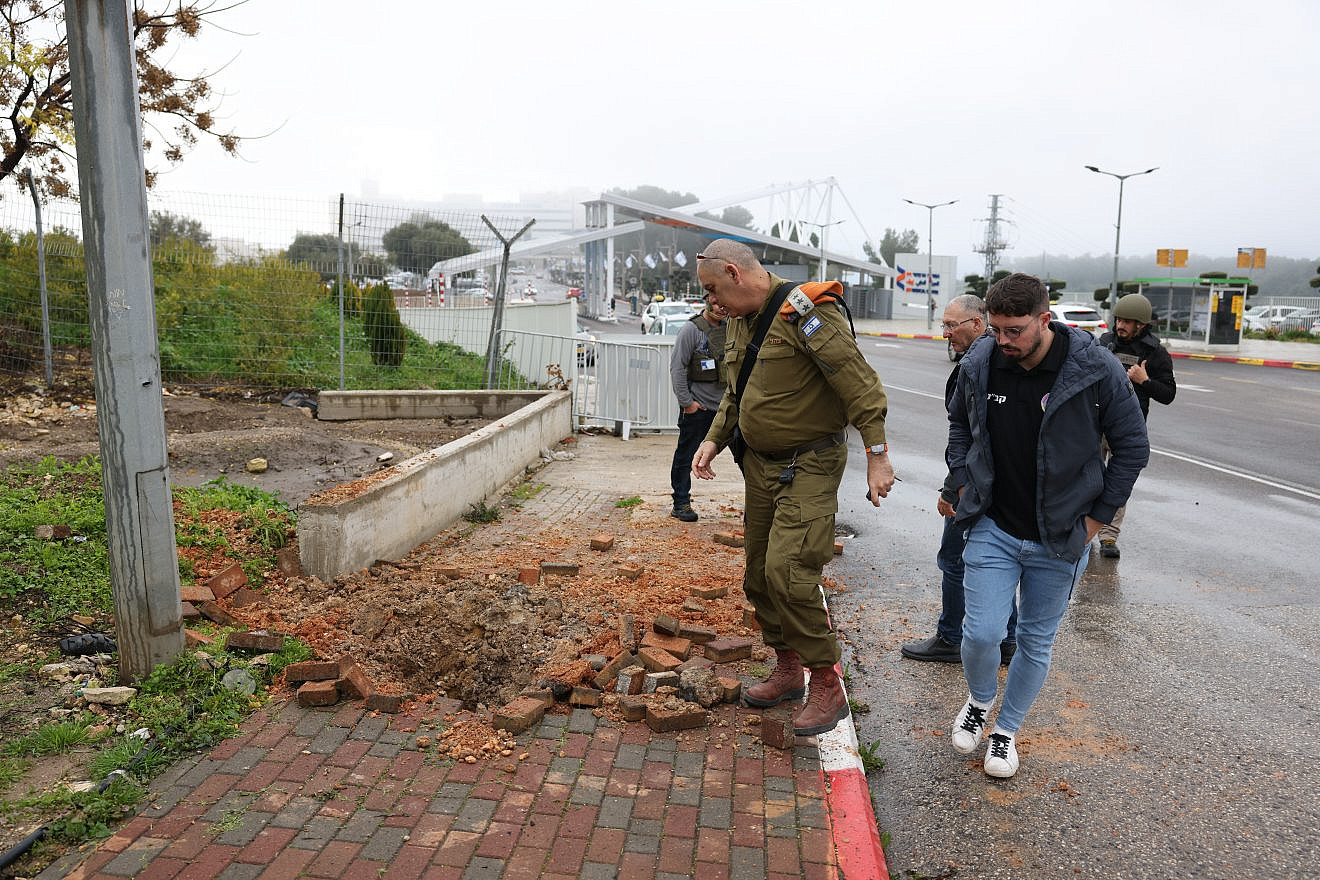A rocket fired from Lebanon by the Hezbollah terrorist group hit a building in the northern Israeli city of Safed on Wednesday, killing one soldier and wounding eight others.
The slain Israel Defense Forces soldier was named as Staff Sgt. Omer Sarah Benjo, 20, from Moshav Ge’a in the south of the country. She served in the 91st Division’s 869th Combat Intelligence Collection unit.
Her body was found under the rubble during searches of damaged buildings, Magen David Adom director-general Eli Bin said.
MDA medics and paramedics provided medical treatment to seven people, whom they transferred to Ziv Medical Center in Safed—three in moderate condition and four lightly wounded. They were all fully conscious.
Ido Merridor, spokesperson for Ziv Medical Center, later updated that eight patients were admitted—one in serious condition, one in moderate condition and six lightly wounded.
A second rocket crash site in Safed was reported, with no casualties from that hit.
“There were strikes near the city, also in our area, there are injured. We are returning the educational institutions to normal. … I don’t think we need to talk about evacuation, we are on full alert,” Kan quoted Safed Mayor Shuki Ohana as saying.
The IDF confirmed that several launches were detected from Lebanon that crossed the border to the area of Moshav Netu’a as well as near Kibbutz Manara and an IDF base. The announcement did not mention Safed. The IDF said it was attacking the launch sites.
In the afternoon, the IDF said that “fighter jets began an extensive wave of attacks in Lebanese territory,” with details to come later.
Channel 14 reported shortly after the attack that Israel was “currently discussing the nature of the response following the serious incident in the north this morning.” Ynet reported that the IDF was preparing for a “significant response” in Lebanon and not only at the sources of the shooting.
During a meeting with the mayors of northern towns on Wednesday, IDF Chief of Staff Lt. Gen. Herzl Halevi promised to use “all the tools and abilities” available should the conflict with Hezbollah escalate. Halevi said he approved attack plans in response to the rocket strikes.
“There are very great achievements in hitting Hezbollah in Lebanon, but we continue to act,” Halevi said. “This is not the point to stop. There is still a long way to go and we will walk it together.”
Two Israeli civilians were seriously wounded on Tuesday by a Hezbollah rocket attack on Kiryat Shmona, close to the border with Lebanon.
The victims, 15-year-old Idan Saada and his 47-year-old mother, Heli Saada, from Elifelet, a moshav near Safed, were evacuated to Rambam Medical Center in Haifa where they were in serious but stable condition on Wednesday morning, according to a municipality update.
They were intubated and in an induced coma. The hospital removed the ventilators later on Wednesday; the pair regained consciousness and their condition improved in the afternoon to medium-severe.
Nearly 100,000 residents of northern Israel were displaced in the immediate aftermath of the Oct. 7 Hamas massacre of some 1,200 people near the Gaza border amid fears that Hezbollah’s Radwan fighters could attempt a similar invasion from Lebanon.
Israel has said that while a diplomatic solution is preferable, a military confrontation with Hezbollah is on the table to return residents to their homes safely.
Paris has brought a proposal to Beirut that aims to prevent a full-scale war between Israel and Hezbollah over the Iranian terrorist proxy’s cross-border attacks from Lebanon.
Last week, French Foreign Minister Stéphane Séjourné delivered the draft document to top officials in the Lebanese capital including Prime Minister Najib Mikati, Reuters reported on Monday, citing four senior Lebanese and three French officials.
The proposal calls for Hezbollah’s elite Radwan forces to withdraw 6 miles from the Israeli border, where they have been carrying out daily attacks on Upper Galilee communities since the radical Shi’ite group joined the war in support of Hamas.
Hezbollah on Tuesday reiterated that it will not stop attacking across the border until the fighting in Gaza ends.
The IDF has struck more than 3,400 Hezbollah targets in Southern Lebanon since the Iranian terrorist proxy joined the war in support of Hamas.
Hezbollah fired more than 2,000 rockets at Israel between Oct. 8 and Jan. 9. Additionally, the group has launched dozens of anti-tank missiles and drones at Israeli territory.
The Hezbollah attacks have led to military and civilian deaths and widespread damage in the Upper Galilee.


























